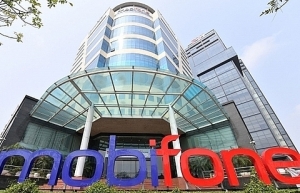How to get ahead with SOE equitisation in Vietnam
In SOE equitisation, private investors often seek to improve production capacity, product quality, and market position; take advantage of available capital in terms of land use rights value; and make the best of certain shares and a number of customers in the market. In return, SOEs can benefit from domestic and foreign investors providing capital, tech, and management know-how.
 |
| Ngo Quynh Anh - Managing partner, EPLegal and Hoang Thi Hang - Associate, EPLegal |
However, the legal and compliant aspects of all forms of equitisation are not simple. The first challenging aspect is the government’s regulations and policies still not being adequate or consistent enough. For example, Appendix I of Decree No.126/2017/ND-CP stipulates that within 20 days from the date of announcement of equitisation, the investors shall submit the application dossiers for registration as a strategic investor, and the enterprise involved shall review such dossiers. This can cause many financiers with great interest to withdraw at the offering stage due to lack of time to examine, analyse, and submit the applications.
In addition, the sale of shares to strategic investors is required by law to be completed within four months from the date the equitisation plan is approved, which is not practical due to the acquisition involving numerous assets, defining the land price, and completing the approval process.
The second difficulty is determining land value and the approval of land use plan. In Vietnam, it is the state that grants land use rights to SOEs. In consideration of equitisation, the enterprise must determine the value of land use rights which would contribute to the total actual enterprise value, or the price for initial offering of the enterprise.
The procedures are lengthy, with the participation of not just people’s committees but also departments of finance, natural resources and environment, and tax as well as independent consultants. The complication of the law may cause delays and, in certain cases, even doubts towards transparency.
The third problem is the inefficiency in divestment. In 2016-2021, 183 SOEs completed the equitisation/divestment process. This means there are still over 100 enterprises behind schedule, and the legal framework for enterprises that are post-equitisation and in the process is still being developed. Also, SOEs face countless restrictions on finding strategic investors under the policy of attracting strategic shareholders.
Even the ambitious high-level goals established in equitisation and divestment in the plan 2000-2021 have not been fully achieved, the obstacles surrounding the process have been identified by government agencies and these are not insurmountable. Therefore, the private investors have reason to believe that the framework in the subsequent period will be improved, notably in the regulations.
A series of action plans, as listed below, demonstrate the ongoing efforts of the Vietnamese government and SOEs to improve the efficiency and accelerate the equitisation process in the coming plan towards 2025.
By entering into the Comprehensive and Progressive Agreement for Trans-Pacific Partnership in 2019, Vietnam has committed to comply with the agreement regarding the state’s ownership enterprise. One of its primary obligations is to ensure the transparency of certain information, such as the state’s ownership rate. This signals the willingness and openness of the Vietnamese government with a dominant state-owned sector to successfully pursue economic integration.
Decision issued by the government in recent times were made to incentivise foreign investors to pour money into SOEs, as well as to address the issue faced by investors during previous equitisation and divestment. We firmly believe that corresponding amended regulations as well as updated guidelines shall be issued by relevant agencies in the near future to align with these decisions.
It is also worth noting that some large SOEs in key industries and fields for the development of the economy such as energy, industry, finance, agriculture, telecommunications, and infrastructure shall be targeted in the upcoming period; therefore, it would present exciting opportunities.
Government bodies must formulate consistent policies to attract strategic shareholders, especially international investors, to put money into SOEs. In particular, the government should review legal documents to promulgate a set of feasible guidelines. This includes not only the simplified administrative procedures but also the regulations to increase transparency as well as to incorporate international practices, such as determining the business value and transaction cost of shares to accelerate equitisation and divestment.
Elaborate preparation is a key component for successful business. This ensures that sufficient time is given to the investors to understand the overall necessary procedures to conclude the agreement, such as legal frameworks, government practices, or to implement the appropriate due diligence before officially bidding to increase the chance of success.
 | SOE equitisation plan likely to be missed in 2017-20 The equitisation of State-owned enterprises (SOEs) has fallen behind the target set by the Government and ministries for 2017-20. |
 | Solving the puzzle of foreign interest in SOE equitisation For years, the Vietnamese government has looked for ways to reduce its direct ownership in key state companies and so to broaden private ownership. For many reasons, equitisation and divestment have not yet occurred on schedule or as intended. |
What the stars mean:
★ Poor ★ ★ Promising ★★★ Good ★★★★ Very good ★★★★★ Exceptional
 Tag:
Tag:
Related Contents
Latest News
More News
- Internal strengths attest to commitment to progress (February 19, 2026 | 20:13)
- Vietnam, New Zealand seek level-up in ties (February 19, 2026 | 18:06)
- Untapped potential in relations with Indonesia (February 19, 2026 | 17:56)
- German strengths match Vietnamese aspirations (February 19, 2026 | 17:40)
- Kim Long Motor and AOJ Suzhou enter strategic partnership (February 16, 2026 | 13:27)
- Haiphong welcomes long-term Euro investment (February 16, 2026 | 11:31)
- VIFC in Ho Chi Minh City officially launches (February 12, 2026 | 09:00)
- Norfund invests $4 million in Vietnam plastics recycling (February 11, 2026 | 11:51)
- Marico buys 75 per cent of Vietnam skincare startup Skinetiq (February 10, 2026 | 14:44)
- SCIC general director meets with Oman Investment Authority (February 10, 2026 | 14:14)


















 Mobile Version
Mobile Version